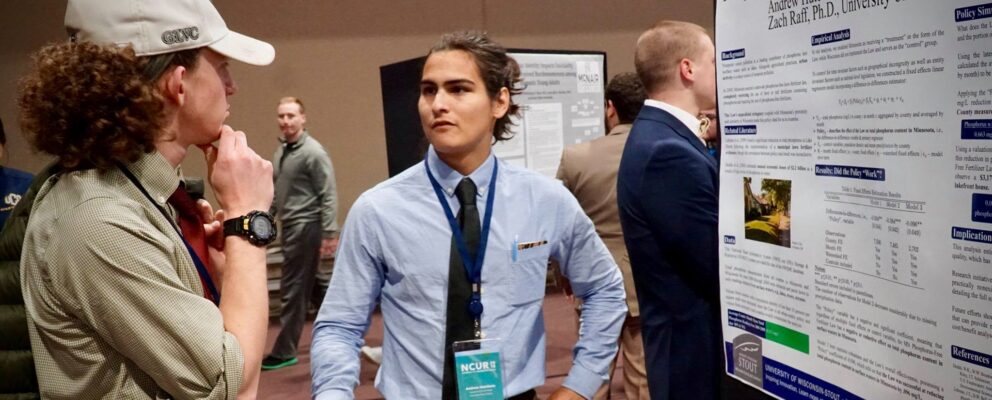Andrew Hutchens, a PhD candidate in the Economics Graduate program, is an Energy Data Analytics PhD Student Fellow for 2022. Supported by the Alfred P. Sloan Foundation, the fellowship program at Duke University readies emerging scholars to apply advanced data science techniques to energy challenges. Read Hutchen’s description of the program and how it will strengthen his research and grow his professional network.
“I wanted to be a part of this program for two main reasons. First, to augment the superb empirical training that I’ve received from ARE with experience in cutting-edge data science and big data methods. Both data science and big data are becoming increasingly important to economic research, particularly in environmental and energy economics, and my research agenda will greatly benefit from improving my expertise in those realms. Second, to enhance the interdisciplinary aspect of my research in energy and environmental economics. A lot of the topics that I work on rely substantially on information from the natural sciences and engineering, so being in close contact with rising and leading researchers from both arenas is vital for effectively answering economic research questions.
In this program, I’ll be working on a project that empirically characterizes power plants’ drought responses under varying electricity and water market conditions. Alongside Eric Edwards, Harrison Fell, and Jordan Kern (from the Department of Forestry and Environmental Resources), I’ll be leveraging rich panel data on plant operations, electricity and water market characteristics, and drought measures to see if there are any stability or efficiency advantages to certain electricity and water market types as the power grid progresses through climate change and a transition away from non-renewable energy. The major data science and big data components of the project stem from analyzing satellite data on drought conditions and using machine learning to predict plants’ drought responses under alternative policy and market scenarios.
This program will undoubtedly allow me to improve my ability to present economic research to non-economists as well as integrate insights from engineers, natural scientists, and data scientists into my economic modeling. I also see the program as an invaluable opportunity to network with faculty and peers who are also interested in energy research.”

